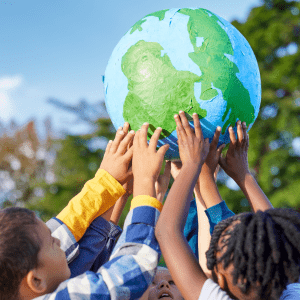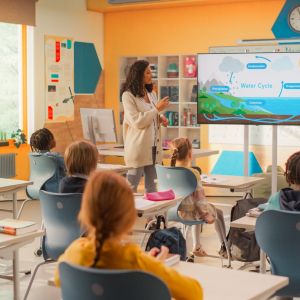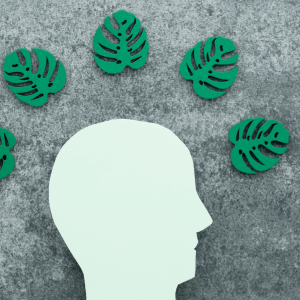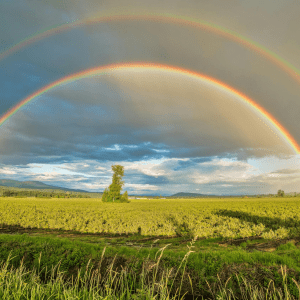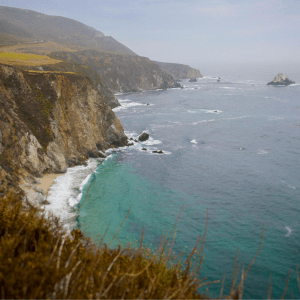Climate Change
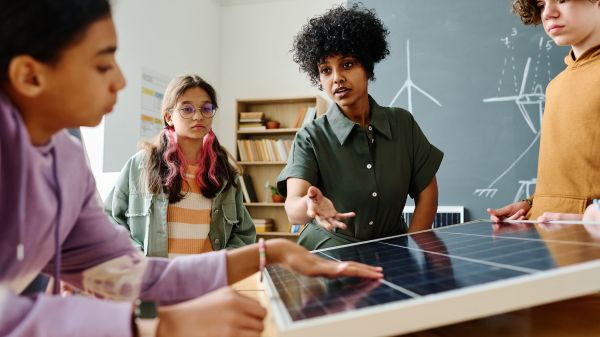
Education is essential to help people of all ages understand climate change and take informed action to prevent it and mitigate impacts. The U.S. Global Change Research Program worked with myriad agencies and organizations to develop Climate Literacy: Essential Principles of Climate Sciences which identifies the knowledge and abilities individuals and communities need to make informed and responsible decisions about actions that impact our climate. Use the resources below to help build our collective climate literacy.
To support the whole student, the Climate Mental Health Network (in partnership with CLEAN) has developed following activities and teaching strategies that will help educators explore the relationship between climate and mental health, focusing on accessible, youth-friendly resources that aid teachers in approaching complex and sensitive topics in the classroom.
From elementary school to middle school to high school, these lists offer engaging narratives that not only enhance literacy skills but also cultivate environmental awareness. Young readers can explore picture books and children’s book read-alouds while older students can read and analyze short stories, graphic novels, chapter books, and scientific articles.
The Wild Center has created a step-by-step guide to help individuals, schools, organizations, and others plan a climate youth summit.
These resources include helpful backgrounders for educators, interactive maps for students, and audio stories designed to make information about climate change accessible and interactive. Activities are aligned with Common Core State Standards and Next Generation Science Standards and can be filtered for introductory, intermediate, and advanced level learning.
Guidelines: Depth, Fairness and accuracy
The effects of climate change on mental health are rarely highlighted in textbooks or the media, but it is a major concern, especially for communities disproportionately affected by other environmental injustices. This report is published periodically by the American Psychological Association with the latest version (2021) linked here. Students in my college course on intersectional environmental communication highlighted this resource as the most impactful subject they learned about. Teaching about mental health and climate change is essential for promoting civic responsibility and centering curriculum on equity and inclusion. This report is written in clear language that is easy to assign as readings or develop lectures from. Students will likely personally identify with many of the themes, and therefore instructors should exercise caution in leading discussions to respect student experiences.
Guidelines: Action orientation, Emphasis on skills building, Fairness and accuracy
Written by Leah Thomas, the founder of popular Instagram account @intersectionalenvironmentalist (which is also a sizable brand crossing social media boundaries), this book explores how environmental injustice disproportionately affects communities traditionally silenced and marginalized. Increasingly, young people are passionate about the undeniable link between climate justice and social justice. This book will appeal highly to readers feeling a sense of urgency in the climate action movement and spark group discussions beyond climate science into civil rights and action. This is a fantastic way to reach individuals who recognize this work from social media activism and bring those conversations into the classroom.
Guidelines: Action orientation, Emphasis on skills building, Fairness and accuracy
LiMPETS is a citizen science program that gives 6th to 12th grade students a chance to participate in monitoring research that is used to track trends in ecology and the effects of climate change, among other environmental phenomena, along the coast of California. Students build science skills in data collection, analysis, and presentation in their classrooms and backyards. The program, based on outstanding high-quality science, provides instructional training and materials that are usually only available at the college level. Supported by the National Marine Sanctuaries, it can also connect educators to broader resources on ocean and climate science on our coasts.
Guidelines: Depth, Emphasis on skills building, Fairness and accuracy, Usability




